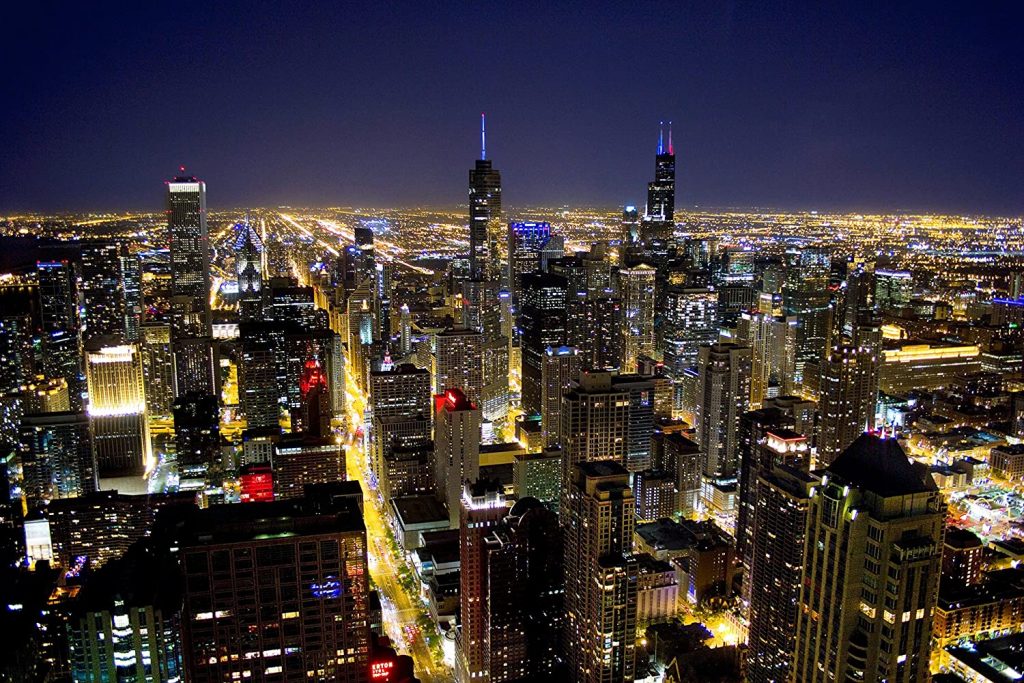His Last Few Hours
Desperate people do desperate things. Frank Curran was desperate. It was time to pay up, and he knew it. But ending up as a news piece in the Chicago Times wasn’t what Frankie Curran had in mind when he headed into a frigid Chicago morning on January 25, 1938.
Before he stepped out the door of his second-floor room, he grabbed his pack of cigarettes and revolver off the kitchen table of his Ingleside Avenue room. Walking down the steps, he checked the bullet chamber; it was full. He clicked it shut and put it in his overcoat pocket. As he stepped into the cold, he lit a cigarette and turned his overcoat collar up. He walked up West 63rd Street and flagged a checkered cab.
“Where to buddy?” beckoned the cab driver. Curran slid into the cab to the sounds of Sonny Boy Williamson’s “Dust My Broom” playing on the cab radio. “Do you mind the music?” asked the driver.
“The music’s fine. I like Sonny Boy a lot. I am a Southside guy myself. Take me to 32nd.” He sat in the backseat smoking and nervously fingering his revolver. When Ellis stopped at the intersection of 32nd Street and Ellis Avenue, Curran leaned over the seat and put his pistol to Ellis’s temple, and took his morning’s take of $10. Curran then fled into Lake Meadows Park to catch his breath and regroup.
Calmly, Curran headed out onto East 31st street, flagging down Cabbie #2, Oscar Johnson. From Johnson, he got $5, robbing him at E 31st Place and South Rhodes Avenue across the street from Lake Meadows Park’s entrance. Curran ran through an alley, nervously crossed East 31st, and weaved his way down side streets and alleys ending up on E 30th Avenue and South Vernon Avenue.
It was early in the morning. Curran kept moving.
He had no other choice.
Frank Curran came from a large Irish Catholic family. His father, John P. Curran, a Chicago policeman, emigrated from Ireland in 1893 and died when Frank was 14. His mom, Margaret Driscoll, came to the United States from Ireland around the same time. Times were tough with his father on a policeman’s salary and his mom at home taking care of his brothers and sisters until her untimely death in 1916. Frank was eight years old when his mother died. His father remarried two years later, and two more children followed. Lost in the shuffle of a large family with limited resources, Frank left home to pursue his dream of a life he had heard about on the radio, read about in the local newspapers, and paid attention to while on the streets.
It didn’t quite work out the way he dreamt.
Cabbie #3, Frank Little, picked up Curran on E 30th Street and South Cottage Grove Avenue near the Michael Reese Hospital entrance. Curran robbed him at S Vernon and E 29th Place of his morning’s take of $9.50. Little yelled, hoping to draw some attention, but Curran vanished into the hospital’s back entrance before anyone noticed.
After robbing Little, Curran boldly came out of the hospital’s front entrance and where cabbie #4 Richard Mack sat waiting for a fare. Curran was his last fare of the morning before heading home after driving in the cold Chicago night, with few good-paying passengers.
Curran had Mack take him to enter the recently reopened Mercy Medical Center. Upon reaching the Mercy Medical Center grounds, Curran put his gun to Mack’s head and urged him to be quiet as he robbed Mack of his day’s take. Mack pleaded with Curran not to take all his money. In a show of feigned mercy, Curran dropped 50 cents on the front seat before calmly getting out of the cab and headed into the hospital, where he lost himself in the crowd. His take from Mack totaled $18.00.
The Chicago police were onto Curran.
Cabbie #5 Robert O’Shaughnessy picked up Curran on E 25th just off South Michigan Avenue. Curran instructed O’Shaughnessy to take him back home via State Street to his Ingleside Avenue room. O’Shaughnessy did as Curran ordered. He knew from the description the police put out on the local radio station that morning, the guy sitting in his back seat was their man.
He knew Curran was armed.
Curran saw who was now on the cab’s tail as they headed down State Street. Curran ordered O’Shaughnessy to quickly turn down an alley between 30th and 31st street, telling him that he had to take a pee, and it couldn’t wait. O’Shaughnessy glancing in his rearview mirror, saw the police and drove erratically, hoping the police would notice. O’Shaughnessy turned the cab down the alley as ordered and jumped out of the moving vehicle that sent the taxi crashing into a dumpster. Three Chicago policemen quickly converged upon the cab with guns drawn. Curran attempted to draw his revolver; the three Chicago policemen opened fire, killing Curran.
When they pulled Curran’s bullet-riddled body out of O’Shaughnessy’s cab, the identification in his coat pocket identified him as Philip P. Curran, his older brother. A background check found Philip P. Curran with no prior police record.
The 1930s in Chicago were kind to a chosen few.
Frank Curran never realized the kindness.

